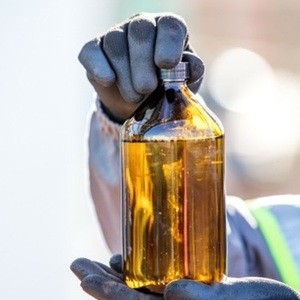Lufthansa Group, VARO Energy partner on SAF



February 3, 2023
BY Lufthansa Group
The Lufthansa Group and the energy company VARO are expanding their long-standing partnership and have signed a memorandum of understanding (MoU) on the production and supply of Sustainable Aviation Fuel. This means that VARO could supply the Lufthansa Group with large volumes of SAF from as early as 2026, for example to the Munich airport hub. The companies are also driving innovative processes to produce green hydrogen from biogenic waste materials. Green hydrogen is a significant CO2-free energy carrier that also plays an important role in the production of SAF.
The MoU underpins the Lufthansa Group's goal of driving forward the availability, market ramp-up and use of Sustainable Aviation Fuels as a core element of its sustainability strategy. The airline group is continuously reviewing options for long-term purchase agreements and is already one of the largest customers of SAF in Europe.
For VARO, the goal of providing decarbonization solutions to the aviation industry forms an important pillar of its corporate strategy. From 2026, VARO aims to produce around 260,000 tons of Sustainable Aviation Fuel per year.
Advertisement
Advertisement
SAF – the sustainable aviation fuel
SAF is the generic term for all aviation fuels that are produced without the use of fossil energy sources such as crude oil or natural gas. Various production processes exist and different feedstock are available as energy sources. The current SAF is mainly produced from biogenic residual materials such as used cooking oil. As a so-called "drop-in" solution, it is mixed with conventional kerosene before being transported to the airport. The maximum blending rate of SAF permitted under the fuel specification is currently 50 percent. In its pure form, SAF from biogenic residues can reduce CO2 emissions by up to 80 percent compared to conventional kerosene. The Lufthansa Group has been involved in SAF research for many years, has built up an extensive network of partnerships and is driving forward the introduction of sustainable next-generation aviation fuels in particular. Special focus is placed on the forward-looking Power-to-Liquid and Sun-to-Liquid technologies, which use renewable energies or solar thermal energy as energy carriers.
Advertisement
Advertisement
Destination sustainability: Into the future with a clear strategy
The Lufthansa Group has set itself ambitious climate protection goals and aims to achieve a neutral COâ‚‚ balance by 2050. Already by 2030, the Lufthansa Group wants to halve its net COâ‚‚ emissions compared to 2019 through reduction and compensation measures. The reduction roadmap until 2030 was validated by the independent Science Based Targets Initiative (SBTi) in August 2022. The Lufthansa Group was the first airline group in Europe with a science-based COâ‚‚ reduction target in line with the goals of the 2015 Paris Climate Agreement. To reduce COâ‚‚, the Lufthansa Group is focusing in particular on accelerated fleet modernization, the use of Sustainable Aviation Fuels, the continuous optimization of flight operations, and offers for its private travelers and corporate customers to make a flight or the transport of cargo more sustainable.
Related Stories
The U.S. Department of Energy’s Office of Energy Efficiency and Renewable Energy is soliciting public comments on a preliminary plan for determining provisional emissions rates (PER) for the purposes of the 45Z clean fuel production credit.
On July 17, Iowa’s cost-share Renewable Fuels Infrastructure Program awarded $1.12 million in grants for 20 applicants to add B11 and 4 applicants to add E15 to retail sites. This was the first meeting following the start of RFIP’s fiscal year.
Par Pacific Holdings Inc., Mitsubishi Corp. and ENEOS Corp. on July 21 announced the signing of definitive agreements to establish Hawaii Renewables LLC, a joint venture to produce renewable fuels at Par Pacific’s refinery in Kapolei Hawaii.
A new study published by the ABFA finds that the U.S. EPA’s proposal to cut the RIN by 50% for fuels made from foreign feedstocks, as part of its 2026 and 2027 RVOs, could stall the growth of the biomass-based diesel (BBD) industry.
The European Commission on July 18 announced its investigation into biodiesel imports from China is now complete and did not confirm the existence of fraud. The commission will take action, however, to address some systemic weaknesses it identified.
Upcoming Events










